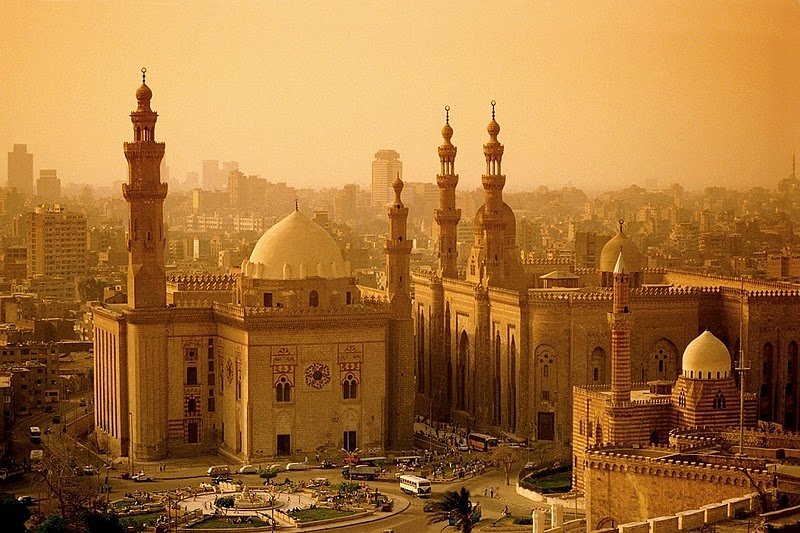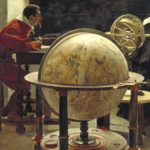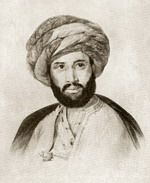
What is meant by religious reform, presented as it is as a way to salvation? Is it intended to open up horizons so as to achieve secularization and the predominance of the concept of modernity? If it’s the European example that comes to mind as the criterion for any call for religious reform, then we must take a look at the infrastructure of religious ideology. But can it tolerate such a shift? And can it, as a corollary, tolerate a reformation of itself?
BY SALAMA KAYLA
ALL SECULARISTS RAISING the issue of religious reform as a means to overturn the three decade-long domination of fundamentalism are obsessed by opening the way for liberalisation – in its ‘original’ meaning – to dominate. A liberalisation, that is, which is related to rationalization, secularization and democratization. So the question is really about the possibility of this kind of religious reform being achieved. Is religious reform therefore possible?
Anyone scrutinizing the structure of Islamic ideology is confronted by the sheer extent of the levels of interconnection and entanglement between this religion and mundane affairs (as it is expressed and as Muḥammad ‘Abduh also indicated). Thus, we find that ‘legal rulings’ are encapsulated in a sacred framework, and become part of the religion itself. We find that politics itself is actually a part of jurisprudence, and must therefore be subject to its rulings.
Perhaps this is not surprising given that its very founding merged religion, in the sense of beliefs, with legal rulings, and came to embrace everything related to society, from rulings on personal matters to affairs of state. So to adhere to the religious text (i.e. the Qur’ān) means to adhere to the rulings on everything related to society. This is what makes ‘returning to the pious predecessors’ indicate returning to a comprehensive ideology, and by extension passing over any specific way of interpreting this. This is what Muḥammad ‘Abduh and Rashīd Riḍā’ did, which means that the issue does not support any separation between what constitutes ‘rulings’ and what constitutes ‘beliefs’.
And that is why we find that all the movements and all the thinkers who worked towards re-establishing the religious ideology ended up repeating the same structure, albeit perhaps in more or less coherent or rational forms. So every intellectual or political foundation for religion must first reproduce this comprehensive indivisible infrastructure, and then go on to open up horizons towards accepting the thought of modernity, as a mentality that can deal with real problems of economics, society and politics, and propose solutions to them. Even here, the Text will be present, and the fatwā will be the gateway to any policy-making. Differences will be a matter of adhering to some previous fatwā, or in engaging in some ijtihād [1] to obtain a new fatwā. Thus, the ‘legal rulings’ remain dependent on the Text, but may have to be adapted to new situations. Here, we can see how the separation between the Text and mundane matters of the world is not achieved, but rather perpetuated.
What meaning is there to religious reform other than separating religion from politics, and leapfrogging over anything in the Text that refers to society?
In which case, what meaning is there to religious reform other than separating religion from politics, and leapfrogging over anything in the Text that refers to society? It seems that such a step will not be easy, but it nevertheless demands that religion not turn itself into an ideology, but instead be absorbed into the self as a personal affair, an individual choice that transcends religion as an ideology. Even so, religion will go on reproducing itself as an ideology whenever the conditions are amenable, because there is something in the religious Text itself that aids (or imposes) this repetition. Any attempt at adapting the religious Text to ‘modernity’ via the Text itself will only end up with ‘marginalizing’ modernity, because there is something in the Text that simply contradicts it. Perhaps this was what all attempts at reform ended up doing, even those undertaken by Muḥammad ‘Abduh.
This is because it is the ideological aspect that dominates religion, and it is therefore impossible to reform such an ideology from within; it expresses interests and policies that cannot adapt to the present changes, to modernity in particular. It cannot not look at the ‘other’ with anything other than a religious perspective, it cannot view at the individual except as an adherent of a religion, and can only see conflicts as religious conflicts. It is in a state of epistemological divergence with the mindset of modernity, a mindset based on the break with the religious ideology that dominated in Europe.
Catholicism underwent an adaptation to modernity after the latter’s predominance and this is perhaps the general nature of development: an ideology that was dominant at one stage in history does not relinquish this position willingly, nor retreat from people’s consciousness without a struggle waged by modern forces. All religious reform takes place once the forces of modernity achieve dominance and set about the task of reconstructing societal consciousness.
Religion will go on reproducing itself as an ideology whenever the conditions are amenable, because there is something in the religious Text itself that imposes this repetition.
It is for this reason that development leads to the realization of the need to make a separation between religion and the affairs of the mundane world, as worldly logic submits itself to a new way of thinking, one that is based on an epistemological rupture with the mindset of the Middle Ages (or the mindset of the agricultural age). Religion in the meantime returns to its role as a private matter, as the religion-based ideology fades away, to highlight the personal character of religious faith (here of course bearing a specific understanding of values).
Linking religion with worldly affairs renders every attempt to reproduce traditional ideology an inevitable reproduction of a religious ideology whose authority is the Sharīʻa, regardless of any attempt to moderate this authority, or lighten some of its provisions. It ends up establishing a religious state which must separate off its citizens on the basis of religion. Such as state holds its legislation to be absolute; it may be interpreted in a ‘lighter’ way, but it cannot supersede it.

Suggested Reading
What Rifāʽa al-Ṭahṭāwī did, and after him ‘Abd al-Raḥmān al-Kawākibī, was not to reproduce ideology as al-Afghānī and Muḥammad ‘Abduh did, but instead they achieved a separation between religion and the worldly affairs by calling for the establishment of a modernist ideology, one that was derived from the developments achieved in Europe since the Enlightenment. Their starting point was the separation between religion and the state, and the transformation of religion into a personal matter, a ‘spiritual state.’
As for reform, the goal of Muḥammad ‘Abduh and Rashīd Riḍā’ was to reproduce the religious ideology in a ‘rational’ way, one that could adapt itself to the developments in the real world achieved by integrating some aspects of capitalism (companies and banks) into the ideological structure itself. This is where the value of Muḥammad ‘Abduh’s fatwās on trade and commercial companies lies, which were interpreted as tending towards the promotion of religious reform. But actual developments on the ground made these fatwās – established as they were on the same ideological logic – tend towards the continuation of traditional structures, and towards defending this continuity in the face of modern trends that were penetrating into society.

Suggested Reading
What this means is that religious reform follows only after modernity’s victory and cannot not itself constitute any entry point to modernity. On the other hand, modernity can only be achieved when there is an epistemological break with medieval thought and a transition towards the system of thought that began to take shape with the European Renaissance, triumphing with the industrial revolution and the victory of capitalism. It is this thought that must form the basis for every modern awareness, and every trend towards the formation of a ‘modern’ society. Here, one must pay due attention before anything else to the cognitive level, since this constitutes the basis for modernity’s triumph.
So, it can be said here that what the era of the Arab nahḍa [2] achieved was the basis for opening up horizons to the primacy of the modernity’s mindset, even though the traditional ideology did not disappear. That required another step in the process, one that was related to the victory of modern powers. Yet a question still remains on the reason for the nahḍa’s failure. Why is it that the concept of resurgence in the Arab world failed?
[1] See Glossary.
[2] See Glossary.


